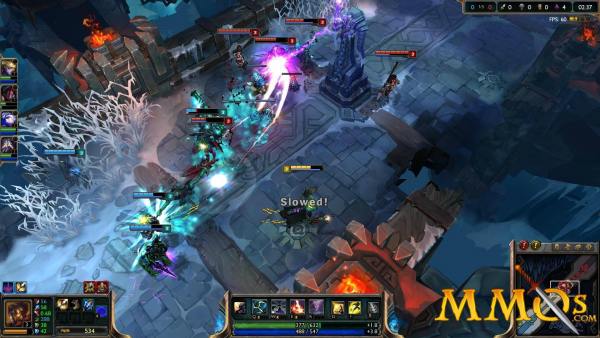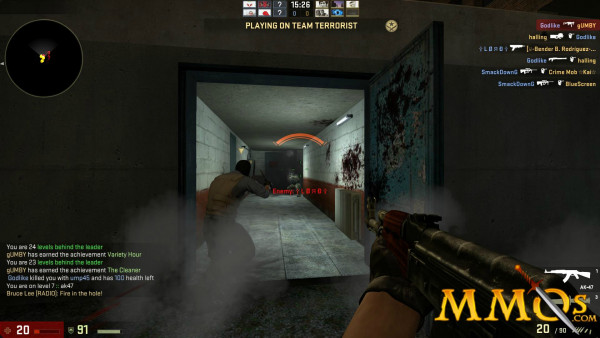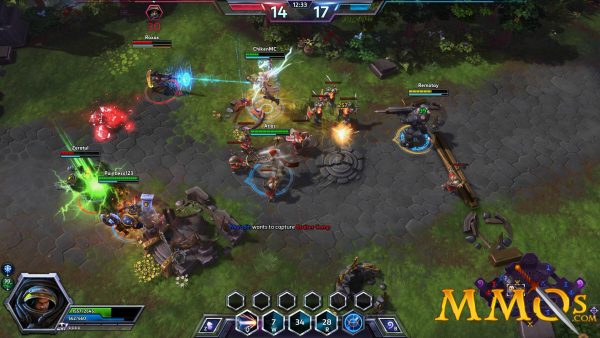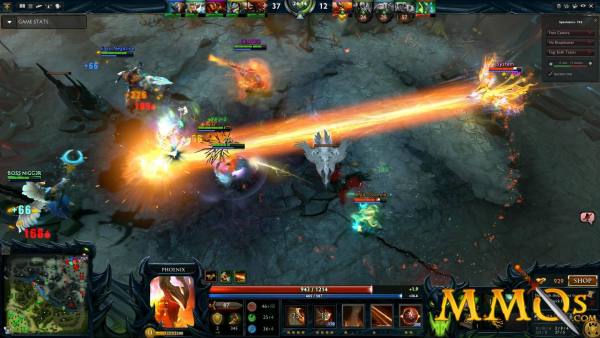Diagnosing Player Rage: A Case Study

When I was a kid I chose not to participate in Dota LAN groups because of truculent friends. I’m older now and those same invested friends have learned to enjoy games whether they win or lose—it’s an almost inevitable part of maturity. But some personalities never learn. And it’s baffling how large egos expand, like a balloon blown by someone without knowledge of air pressure they inevitably explode. They unleash their rage on whoever’s closest, fellow teammates on Skype or by writing out private messages to anonymous players. I wanted to understand their insatiable anger.
I became interested thanks to a close group of friends who routinely play Heroes of the Storm. Like a street scientist I sat in Discord and listened to their games. Four players were interested in fun: working together to enjoy themselves regardless of the game’s outcome. The fifth player was a special case. He hissed angry slurs screamed by the air escaping a popped blood vessel, with relentless accusations such as “You’re an idiot!” and “You don’t focus on the best player on the team and criticize them!” He wants to be a professional player, but lacks a professional attitude.
I’ll refer to “the fifth” as "Melvin" for the sake of anonymity.
I understand that “shittalking” in any game is normal, even preferred. Insulting friends, yelling “noob” over a microphone, and teabagging corpses constitutes everyday virtual behaviors. And criticism creates a sense of community mirroring everyday life, arbitrarily akin to a middle-finger on the interstate. It’s an unfortunate fact that not everyone will like you, and behind the veil of anonymity others don’t have to know you beyond an avatar to throw insults. Taunting imbues an important life lesson. Whether you’re on or offline growing a thick skin is needed to participate in the world. But casual offenses are not the same as the rage-induced behavior Melvin exhibits.
Melvin berates every action that doesn’t conform to his worldview; every play deviating from his perfect plan is an insult to dignity. “Whoever’s dying right now is stupid.” His views are treated as fact, and the ego’s tentacles choke everyone in their path. Violations of edicts are met with howling irritation or, preferably, self-induced exile. Anyone who dares question his merits is stomped with unrelenting shouting. If it wasn’t for the mute function I would need hearing aids.
Words like “stupid,” “idiot,” and “retard,” are common insults, decorating chat like oily pimples on a pubescent boys cheek. Perhaps they were meaningful on the third grade playground. Spoken by a twenty-something is festering sludge. “If you’re going to go bot[tom] at least kill this guy that's fucking here. Oh man [player friend] you suck.” According to a fairly recent study profanity can be indicative of an eloquent vocabulary, but I doubt the noisome words emanating from Melvin’s mouth indicated anything beyond entitlement—the notion that one’s status (correlated with skill) implies superiority.
My initial reaction was to turn away with disgust or respond with the same virulence, but I wanted to understand. Because Melvin isn’t alone. Many players, and forum commentators, seem to exhibit a similar unrelenting rage. Furiously typing away they raise lackluster objections interlaced with ad hominem attacks like Melvin does over a microphone. Even the MMOs.com Disqus section can’t escape the childish vitriol of critics who retain the right to vote.
Perhaps I've mistaken rage for passion, the investment I once had in every Counter-Strike 1.6 match. Yelling “Don’t peak double-doors dammit!” was routine around 5PM, after daydreaming at school. While we never escaped CAL-O we invested our hearts in every match. Every now and then passions flared but they never slipped into relentless belittling. And while my desire for competitive play has waned with age I recall those memories fondly. The primary passion was having fun with buddies, but the rager catalogs fun as a secondary consequence. Misaligned passion creates a desire hierarchy that clashes with other players: the need to always win.
Many players who play games do so to have fun. It’s a way to unwind after work or school, to lose yourself in another world, entertain the brain, mindlessly chip away at trees to construct the perfect architectural marvel. There are exceptions. Perhaps the professional eventually plays to pay bills. But the majority of players are interested in playing for the sake of play. It can be solo or a group experience, a communal bonding. But the rager, like Melvin, ties the essence of their self-worth to play. They must win.
I don’t believe there’s a face value issue with tying identity to games. We all do, in one way or another (i.e. Johan Huzinga’s Homo Ludens). But issues arise when it’s done so with veritable seriousness, when the core of existence is tied to winning. Unfortunately, life is riddled with sufferings and we do not win all the time. But the rager refuses to accept truth. They constantly seek to be right, to tower over others—whether through skill or knowledge. The weight of the world is on the rager’s shoulders, and anyone who dares poke Atlas’ globe is condemned. Such egotistical madness is rooted in insecurity.
While his skills are superior to many of his regular teammates, Melvin’s sense of inadequacy is fanned by the huge number of skilled players dominating public ranking boards, invigorating jealousy. And envy quickly transforms into hate, an abyss that obliterates everything in its orbit. “I would like to find that kid and beat the shit out of him.” His need to win in the face of overwhelming odds creates a rift between reality and a desired state, a frustration emanating slander. Ultimately what I took away was that Melvin projects his insecurities on everyone around him, redirecting his own faults to others while refusing to examine himself.
Melvin wants to be the best, to have his name written in stone, like I believe many pugnacious commentators do as well. Unsatisfied with their self-perception they ridicule anyone who doesn't conform to their worldview. Perhaps they should read Epicurus and recognize that “he who is not satisfied with a little, is satisfied with nothing.” And perhaps they should hear their own criticisms and ask themselves if they too can improve.
People who rage about games aren’t sociopaths, or even bad people, though they may want to believe they are. Rage is a facade, an escape from glaring truths that sear their reality. To live with such intense energy the rager constantly reassures himself of his personality, by vocalizing self-assigned truths. Doing so, he masks his insecurities and refuses to face himself.
The next time I hear Melvin belittle others with locker-room slurs I won’t search for a creative response. I’ve come to learn that some people can’t see pass their own skin. The laws of the universe filter through their existence, because they never learned to love themselves. And all I can do is leave the channel, or remind Melvin the world isn’t so bad. Can’t we just play games and have fun?



